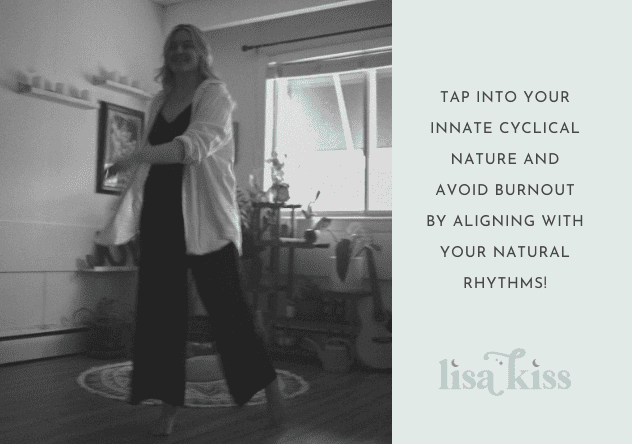Because your time, energy, and resources are too limited to waste on guesswork!
If you’re here, it’s likely you’ve been dealing with chronic pain, fatigue, stress, or burnout for a long time. It’s also likely you’ve tried various routes and, while some have helped, you’re still searching for more support to help soothe your concerns.
But here’s the thing: when you’re already in the thick of feeling unwell, the last thing you need is to invest your limited energy and well-earned resources into something that may not address your specific situation.
We’ve been there, too.
The hurdle isn’t that various healthcare and wellness modalities don’t work, it’s that they don’t work uniformly for every person and their lifestyle, concern, or condition.
(What do we mean by modalities? Think craniosacral massage, myofascial release, EMDR, yoga therapy, EFT Tapping… The list of possible wellbeing supports goes on!)
There are so many helpful health and wellness approaches available but this is all the more reason it’s important to arm yourself with information during consultations with new practitioners before booking your first appointment or signing up for any package deal.
With that, we’ve compiled six questions to help you make confident decisions that not only help move the needle on your well-being journey, but can save you time, effort, and money in the process.
Question 1: “What about this modality can potentially help with my specific (condition, symptoms, or concerns)?”
Why this matters:
Sometimes it’s too easy to sum up with broad sweeps such as “this helps with stress and pain.”
That said, less is not more when it comes to helping you strategize your care plan. Great practitioners will not only effectively share direct connections and data between their modality and how it can possibly support your concerns, but they’re genuinely thrilled at the opportunity to share their knowledge.
What you’re looking for:
Specific understanding how the modality works to potentially support the condition or concerns that match your experience.
Red Flag:
While many modalities do support a wide spectrum of symptoms, feel wary against vague or loose promises that a modality helps “everything,” can 100% cure anything without iron-clad proof, or is outside the practitioner’s credentialed and regulated scope of practice.
Question 2: “What should I expect in terms of timeline and frequency?”
Why this matters:
Your time and energy are already stretched, not to mention the need to invest financial or insurance benefit resources effectively. Plus, we find the best practitioners genuinely want you to “graduate” out of their care, feeling well and ready to self-support sooner than later!
What you’re looking for:
It goes without saying every person’s symptom severity and treatment response are going to differ, and there shouldn’t be any one-plan-treats-all in the health and well-being world. A trusted practitioner should most definitely explain that results will vary, but provide a range of previously-seen results for context, as well as offer the opportunity to evaluate how things are going after each session.
Red flag:
Promises of instant or permanent results, or the pressure to commit to an expensive package deal upfront, especially with no escape clause.
Question 3: “How will we track progress and know if this is working?”
Why this matters:
Especially when you’re dealing with long-held or chronic concerns, improvements are most often subtle and gradual — there’s often a lot of knot to untangle!
You need clear ways to measure whether your investment into treatment is translating into relief.
What you’re looking for:
Concrete tracking methods such as —
• Regular check-ins about pain, sleep, symptoms, or side-effects between appointments
• Specific metrics they monitor, such as range of motion or frequency of flare-ups
• Clear indicators they look for around when to adjust the treatment approach
• Discussion around what “success” looks like for your specific goals and lifestyle
Red flag:
No plan for tracking progress, dismissing your concerns about whether it’s working, or the premise that you’ll be in their specific treatment indefinitely.
Question 4: “What are the potential risks or side effects?”
Why this matters:
Every modality, including the most gentle, soothing, and non-invasive ones, can have an impact on your body, mind, energy, sleep, and focus — even if they’re positive. You deserve to know what to expect if, for no other reason, to know when to schedule your appointments and their impacts around your other commitments!
What you’re looking for:
A candid heads-up around —
• Common temporary effects such as feeling tired, sleepy, or emotional afterwards
• Any conditions or medications that might interact with the treatment
• Signs you should watch for that indicate you should space out, stop, or modify treatment
• What to do if you experience unexpected reactions
• What to potentially avoid after your appointment (big meetings, driving, etc)
• How to best “recover” after your appointment (rest, water, quiet afternoon, etc)
Red flag:
Claiming there are absolutely “no side effects” or only addressing the positive ones.
Question 5: “How does this fit with my current treatments and providers?”
Why this matters:
You’re not starting from scratch — you likely have a medical team, current treatments, and your own ongoing health management that all need to work together. As such, it’s important that any new practitioners joining your wellbeing puzzle help you understand how things can integrate.
What you’re looking for:
No matter the size of your overall team, it’s important when choosing new wellness practitioners that they’re open to asking about your current treatments and medications, and are open to communicating or providing notes to your other providers, where and when appropriate. Additionally, they should be keeping you informed on how their modality can and will fit into your existing care, and also respectful of the boundaries within their scope of practice — you want collaboration, not competition!
Red flag:
Being unwilling to listen or receive intake form information about what your other health and wellness care providers say.
Bonus Question: “What ‘homework’ will be required of me?”
Why this matters:
Nearly every wellness modality or support comes with lifestyle adjustments, maintenance practices, or pre- or post-session recommendations. When you’re already managing chronic concerns and a busy life, you need to know what additional commitments you’re signing up for — plus, you don’t want to accidentally undermine your progress by not supporting yourself between sessions!
What you’re looking for:
Realistic expectations around —
• Pre-session prep (Do you need to avoid certain foods or caffeine, wear specific clothing, etc?)
• Post-session care (Should you limit exercise, increase water intake, plan for rest, etc?)
• Between-session maintenance (Will you need to continue any stretches or exercises or require certain equipment at home, etc?)
• Lifestyle modifications (Will there be enough changes to your diet that you’ll need to invest in new groceries, or should you consider changes to your stressful work schedule, etc?)
Red flag:
Practitioners who don’t mention any lifestyle component or seem surprised at the ask. Effective wellness work almost always extends beyond the treatment room or session, and we often hear “it doesn’t work unless you do.”
Your Next Step: Using these questions as your filter
These questions aren’t just conversation starters, they’re designed to be your filter for finding practitioners who respect your situation, are empathetic to your concerns, and are committed to your actual results rather than just filling their schedule.
A good practitioner will welcome these questions. They’ll appreciate that you’re being thoughtful and proactive about your health, and will often provide a wealth of information to help you make the best informed decision — even if it’s not ultimately with their clinic.
Remember, you’re not being difficult by asking these questions, this is what complimentary consultations should be all about! Your health journey is yours to oversee, and you will thrive best working with practitioners who ultimately want the best wellness outcome for you!
Ready to find practitioners who excel in this area? Methods of Care features local wellbeing practitioners and supports that understand these principles and are committed to transparent, client-centered care. Browse our directory to find qualified professionals in your area ready to help concerns just like yours.










